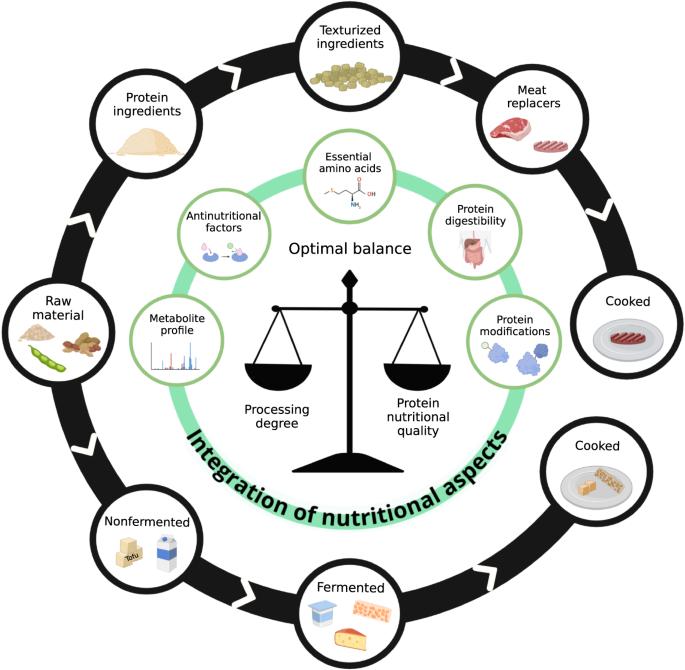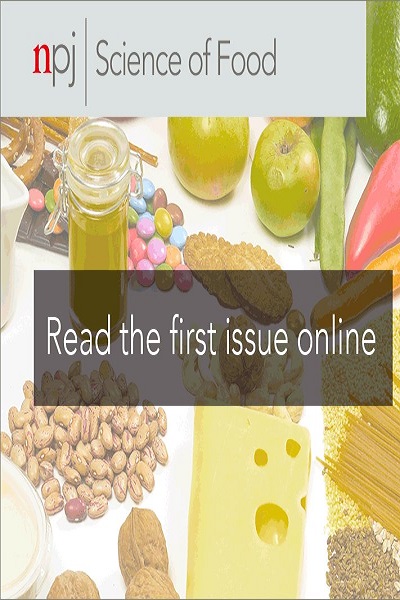加工植物蛋白的可持续性悖论
IF 6.3
1区 农林科学
Q1 FOOD SCIENCE & TECHNOLOGY
引用次数: 0
摘要
可持续植物性食品的生产并不仅仅是在食物链中哪种加工工艺对环境影响最小的问题。我们必须考虑到,不同程度的加工可能会导致最终食品中植物蛋白营养质量的不同。本文章由计算机程序翻译,如有差异,请以英文原文为准。

The sustainability paradox of processing plant proteins
The production of sustainable plant-based foods is not simply a question of which process has the lowest environmental impact in the food chain. We have to consider that different degrees of processing might result in different degrees of plant protein nutritional quality in the final food product.
求助全文
通过发布文献求助,成功后即可免费获取论文全文。
去求助
来源期刊

NPJ Science of Food
FOOD SCIENCE & TECHNOLOGY-
CiteScore
7.50
自引率
1.60%
发文量
53
期刊介绍:
npj Science of Food is an online-only and open access journal publishes high-quality, high-impact papers related to food safety, security, integrated production, processing and packaging, the changes and interactions of food components, and the influence on health and wellness properties of food. The journal will support fundamental studies that advance the science of food beyond the classic focus on processing, thereby addressing basic inquiries around food from the public and industry. It will also support research that might result in innovation of technologies and products that are public-friendly while promoting the United Nations sustainable development goals.
 求助内容:
求助内容: 应助结果提醒方式:
应助结果提醒方式:


